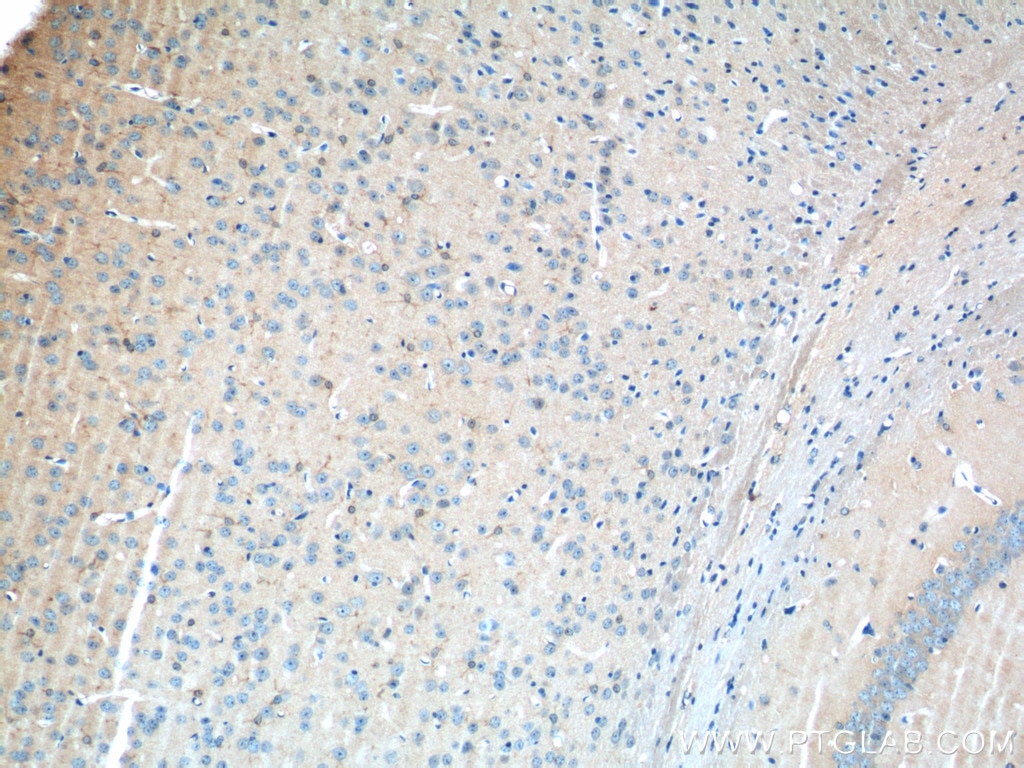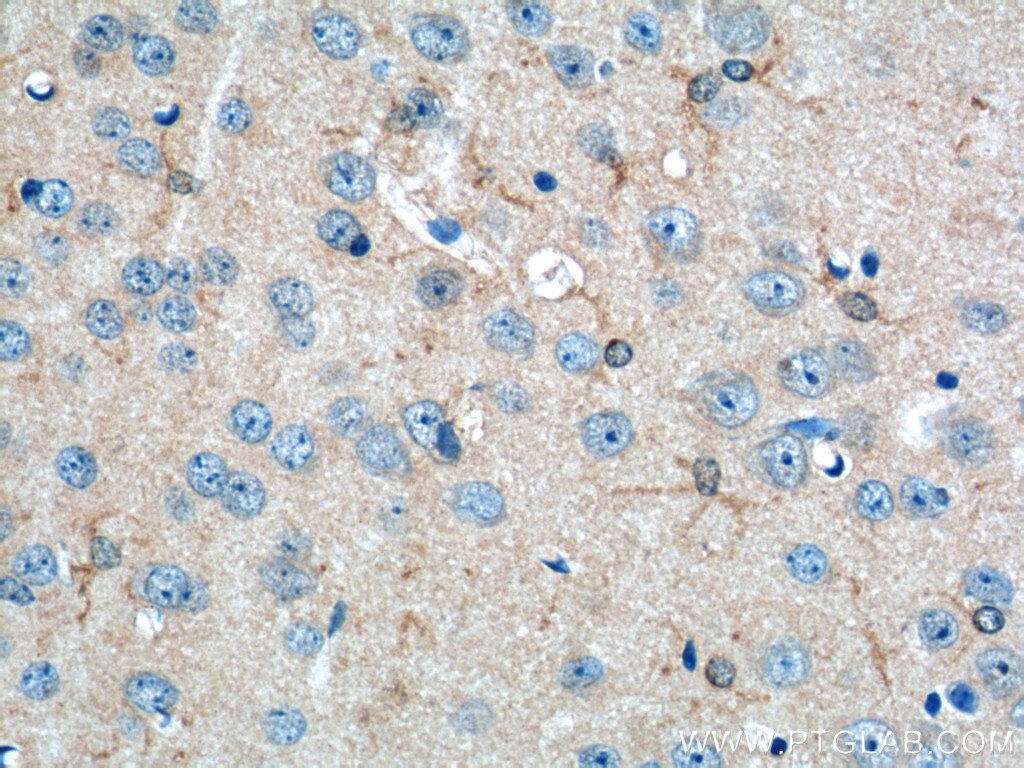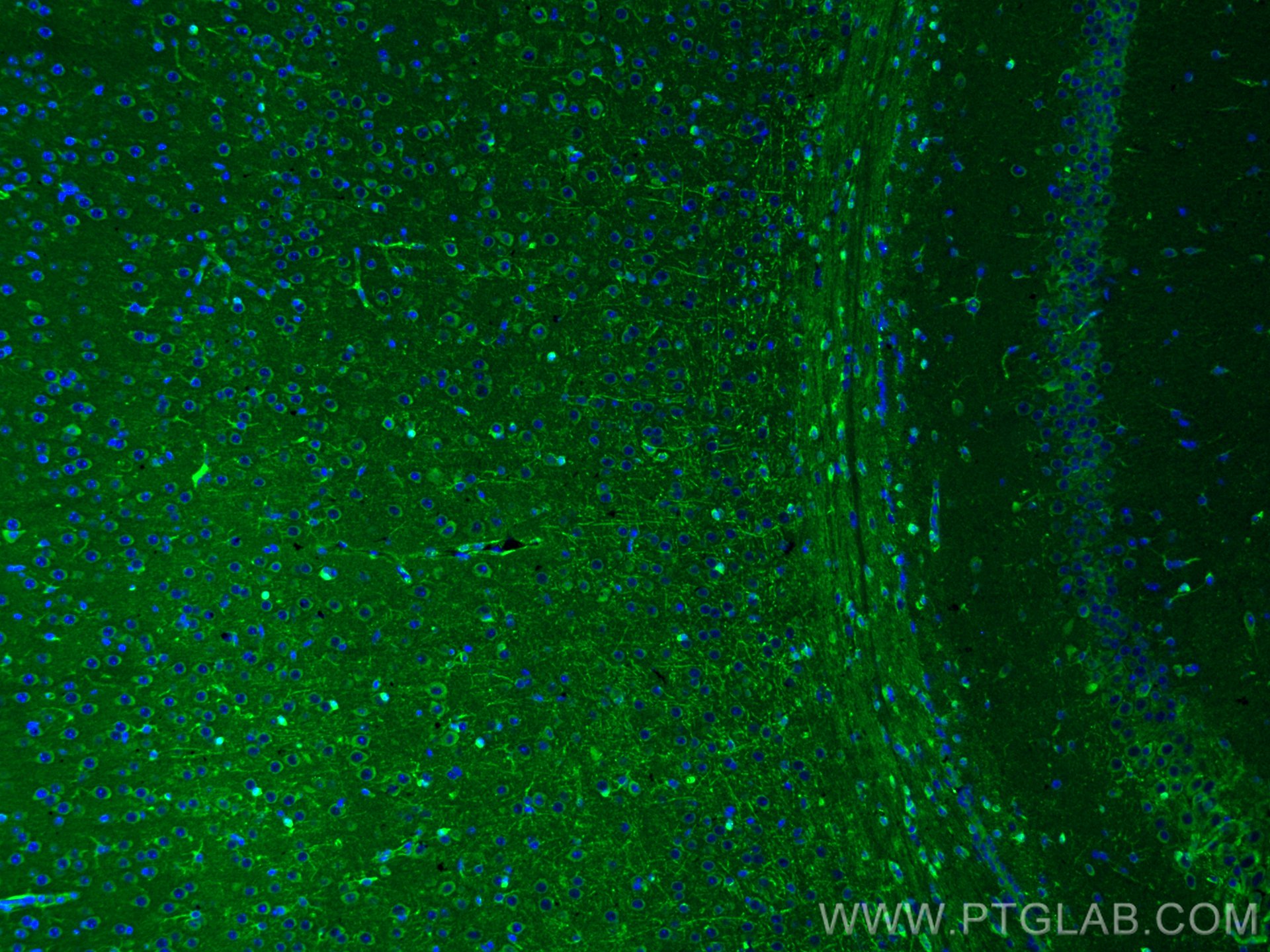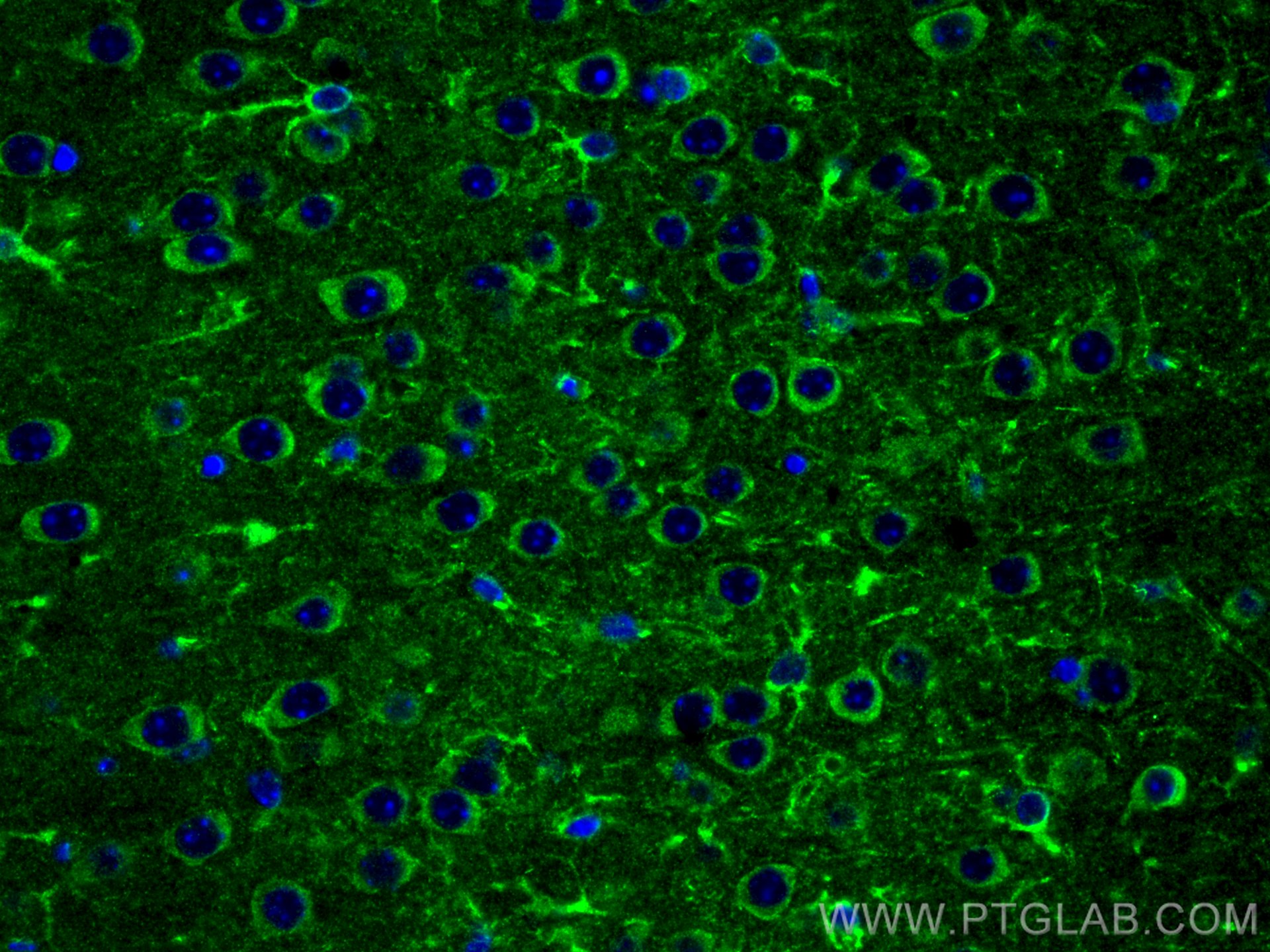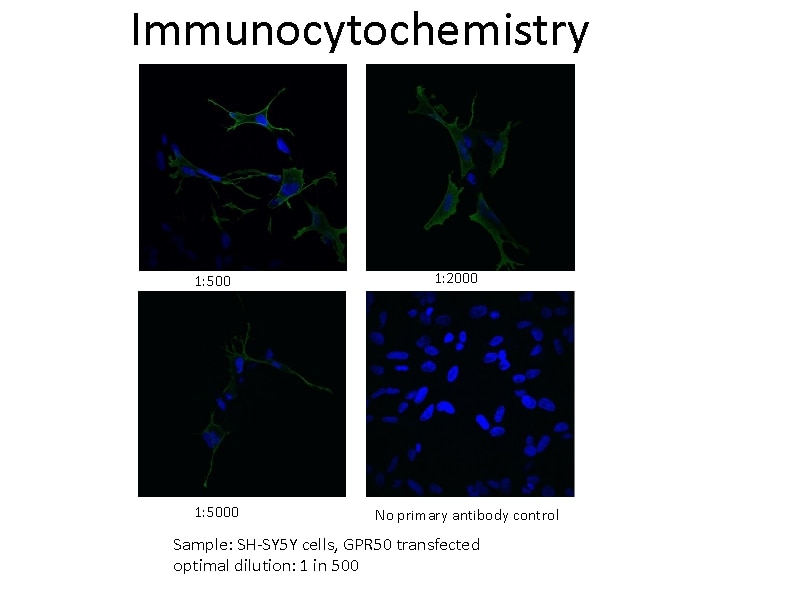Tested Applications
| Positive IHC detected in | mouse brain tissue Note: suggested antigen retrieval with TE buffer pH 9.0; (*) Alternatively, antigen retrieval may be performed with citrate buffer pH 6.0 |
| Positive IF-P detected in | mouse brain tissue |
| Positive IF/ICC detected in | SH-SY5Y cells |
Recommended dilution
| Application | Dilution |
|---|---|
| Immunohistochemistry (IHC) | IHC : 1:20-1:200 |
| Immunofluorescence (IF)-P | IF-P : 1:50-1:500 |
| Immunofluorescence (IF)/ICC | IF/ICC : 1:100-1:500 |
| It is recommended that this reagent should be titrated in each testing system to obtain optimal results. | |
| Sample-dependent, Check data in validation data gallery. | |
Published Applications
| KD/KO | See 3 publications below |
| WB | See 5 publications below |
| IHC | See 1 publications below |
| IF | See 1 publications below |
| IP | See 1 publications below |
Product Information
19762-1-AP targets GPR50 in WB, IHC, IF/ICC, IF-P, IP, ELISA applications and shows reactivity with human, mouse samples.
| Tested Reactivity | human, mouse |
| Cited Reactivity | human, mouse |
| Host / Isotype | Rabbit / IgG |
| Class | Polyclonal |
| Type | Antibody |
| Immunogen |
Peptide Predict reactive species |
| Full Name | G protein-coupled receptor 50 |
| Calculated Molecular Weight | 67 kDa |
| GenBank Accession Number | NM_004224 |
| Gene Symbol | GPR50 |
| Gene ID (NCBI) | 9248 |
| RRID | AB_2878603 |
| Conjugate | Unconjugated |
| Form | Liquid |
| Purification Method | Antigen affinity purification |
| UNIPROT ID | Q13585 |
| Storage Buffer | PBS with 0.02% sodium azide and 50% glycerol, pH 7.3. |
| Storage Conditions | Store at -20°C. Stable for one year after shipment. Aliquoting is unnecessary for -20oC storage. 20ul sizes contain 0.1% BSA. |
Background Information
GPR50, also known as Melatonin-related receptor or H9, is a member of the G-protein coupled receptor 1 family. It is closely related to the G protein-coupled melatonin receptor family and has been demonstrated as the mammalian ortholog of Mel1c receptor (PMID: 8647286; 18400093). GPR50 does not bind melatonin. It is able to heterodimerize with both the MT1 (Mel1a) and MT2 (Mel1b) melatonin receptor subtypes. While GPR50 has no effect on MT2 function, GPR50 prevented MT1 from both binding melatonin and coupling to G proteins. GPR50 is involved in neuroendocrine function and plays a role in the regulation of energy metabolism (PMID: 8647286; 17957037).
Protocols
| Product Specific Protocols | |
|---|---|
| IF protocol for GPR50 antibody 19762-1-AP | Download protocol |
| IHC protocol for GPR50 antibody 19762-1-AP | Download protocol |
| Standard Protocols | |
|---|---|
| Click here to view our Standard Protocols |
Publications
| Species | Application | Title |
|---|---|---|
Nat Cell Biol Molecular identification of a BAR domain-containing coat complex for endosomal recycling of transmembrane proteins. | ||
J Cereb Blood Flow Metab Agomelatine promotes differentiation of oligodendrocyte precursor cells and preserves white matter integrity after cerebral ischemic stroke | ||
Transl Stroke Res Melatonin Offers Dual-Phase Protection to Brain Vessel Endothelial Cells in Prolonged Cerebral Ischemia-Recanalization Through Ameliorating ER Stress and Resolving Refractory Stress Granule | ||
Front Pharmacol An Improved Genetically Encoded Fluorescent cAMP Indicator for Sensitive cAMP Imaging and Fast Drug Screening.
| ||
Am J Chin Med Tetramethylpyrazine Attenuated Sevoflurane-Induced Neurotoxicity by Enhancing Autophagy through GPR50/CREB Pathway in SH-SY5Y Cells.
| ||
FEBS Open Bio Orphan receptor GPR50 attenuates inflammation and insulin signaling in 3T3-L1 preadipocytes
|

